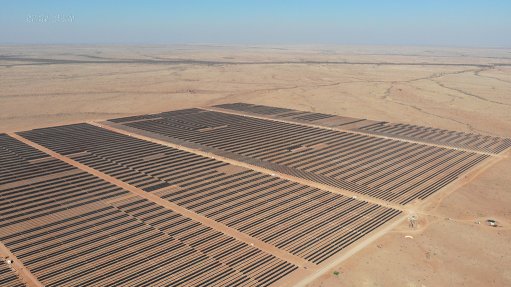Scientists want to dump hundreds of plastic blocks into the sea to solve litter mystery
We know a staggering volume of plastic waste is ending up in our oceans, but where it all goes is still a bit of a mystery.
A ground-breaking new study aims to shed light on the subject, but scientists have hit a stumbling block after concerned citizens launched efforts to stop it from going ahead.
Professor Peter Ryan, the director of the Percy FitzPatrick Institute of African Ornithology at UCT, has been studying the impacts of plastic on marine life for decades.
In order to determine how waste is dispersed, Ryan's team wants to release 12 cm x 8 cm white plastic blocks into river mouths in Cape Town to see where they end up.
The blocks come in two types - hard plastic sheets that are 3 mm thick and polystyrene blocks that are 30 mm thick – and are labelled to help ensure they are returned to UCT if the public finds them.
Ryan said the study would help them understand the big mismatch between how much plastic is estimated to be floating out at sea (around 250 000 t) and how much is thought to "leak" out from rivers and streams each year (between 5-million and 12-million tons).
He said the math simply does not add up.
"Even allowing for plastics that sink, either one [or both] of these estimates is wrong, or a lot of the plastic litter coming out of rivers and storm drains is not actually ending up at sea," Ryan explained.
POLLUTION CONCERNS
However, the team was forced to put the project on hold on Tuesday, due to the public raising concerns over deliberate pollution.
Ryan said he had been contacted by a lawyer and an online petition had been launched.
The petition, which had 382 supporters at the time of writing, states: "The insanity of releasing polystyrene blocks into Table and False bays over several weeks to estimate the proportion that washes ashore is environmentally irresponsible, poses a danger to sea life, it breaks up, and takes years to decompose."
But Ryan said the outcry was bizarre considering the scale of pollution that happened every day. He described the petition as "well-intentioned but perhaps ill-informed".
He added that the blocks were designed to have minimal impact on the environment, posed no entanglement risk, and were too large to be ingested by virtually all marine organisms. In addition, the team plans to assess how many blocks are recovered after a test release.
"Relative to the tons of litter Cape Town leaks into the sea every day, our little experiment is literally a drop in the ocean. Every time it rains, we estimate Cape Town dumps about 20 t of litter into the sea, which emphasises how trivial our experiment is in the bigger scheme of things."
Additionally, he said, the team would end up collecting a lot more plastic than it released during its daily surveys.
"It would be great if people applied their energy to petitioning the city council to place effective litter traps on the river and storm drains coming out of the metropolitan area - that would have a much greater effect on keeping our beaches and ocean clean."
Comments
Announcements
What's On
Subscribe to improve your user experience...
Option 1 (equivalent of R125 a month):
Receive a weekly copy of Creamer Media's Engineering News & Mining Weekly magazine
(print copy for those in South Africa and e-magazine for those outside of South Africa)
Receive daily email newsletters
Access to full search results
Access archive of magazine back copies
Access to Projects in Progress
Access to ONE Research Report of your choice in PDF format
Option 2 (equivalent of R375 a month):
All benefits from Option 1
PLUS
Access to Creamer Media's Research Channel Africa for ALL Research Reports, in PDF format, on various industrial and mining sectors
including Electricity; Water; Energy Transition; Hydrogen; Roads, Rail and Ports; Coal; Gold; Platinum; Battery Metals; etc.
Already a subscriber?
Forgotten your password?
Receive weekly copy of Creamer Media's Engineering News & Mining Weekly magazine (print copy for those in South Africa and e-magazine for those outside of South Africa)
➕
Recieve daily email newsletters
➕
Access to full search results
➕
Access archive of magazine back copies
➕
Access to Projects in Progress
➕
Access to ONE Research Report of your choice in PDF format
RESEARCH CHANNEL AFRICA
R4500 (equivalent of R375 a month)
SUBSCRIBEAll benefits from Option 1
➕
Access to Creamer Media's Research Channel Africa for ALL Research Reports on various industrial and mining sectors, in PDF format, including on:
Electricity
➕
Water
➕
Energy Transition
➕
Hydrogen
➕
Roads, Rail and Ports
➕
Coal
➕
Gold
➕
Platinum
➕
Battery Metals
➕
etc.
Receive all benefits from Option 1 or Option 2 delivered to numerous people at your company
➕
Multiple User names and Passwords for simultaneous log-ins
➕
Intranet integration access to all in your organisation


















